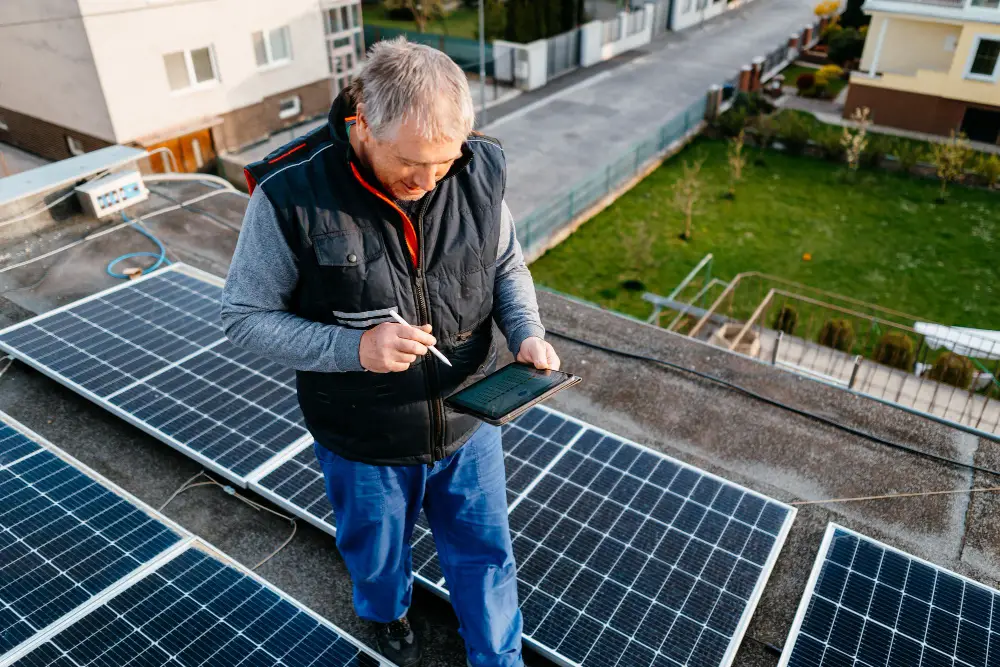With the rising concern for environmental sustainability and the increasing cost of traditional energy sources, more homeowners are considering the switch to solar power. But is solar energy a viable option for every home?
Despite its many advantages, there are several factors to consider before making the switch. This comprehensive guide will walk you through the crucial elements to evaluate when determining if solar energy is the right choice for your home.
Assessing Your Home’s Solar Potential

One of the first steps in assessing your home’s solar potential is to consider the amount of sunlight your property receives on a daily basis. Factors such as geographical location, the angle of your roof, and potential shading from trees or nearby structures can significantly impact the amount of solar energy you can harness, as the folks behind this Perth solar installation company explain.
Additionally, it’s essential to evaluate your home’s energy needs. Installing a solar panel system that generates more power than your household consumes can result in excess energy being sold back to the grid or wasted. On the other hand, installing an insufficiently sized system could lead to not meeting your energy demands and relying on traditional energy sources.
Financial Considerations
The decision to go solar often hinges on the financial implications, which can be complex. Incentives and the state of the solar market also play a significant role.
Upfront Costs and Financing
Solar panel installation comes with a substantial upfront cost. However, various financing options, including loans, leases, and power purchase agreements (PPAs), can make solar energy more accessible. Research what’s available in your area to find the most cost-effective solution for your situation.
Return on Investment (ROI) and Payback Period
Calculate the expected ROI and payback period for your system. This involves estimating your savings on electricity bills and factoring in any incentives, such as tax credits or rebates. Typically, a residential solar system pays for itself in around 5 to 10 years, depending on factors like energy usage and local electricity prices.
Incentives and Rebates
Government incentives can significantly reduce the upfront cost of solar installations. Federal tax credits, as well as state and local rebates, can make the switch to solar more affordable and can improve your ROI. Keep in mind that these incentives can change, so be sure to check the most current offerings.
Energy Considerations

Beyond the financial aspects, it’s crucial to understand how solar energy aligns with your household’s energy consumption patterns. Solar panels generate the most power during daylight hours, so if your household consumes a significant amount of energy during these times, solar energy can be particularly beneficial.
However, if your major energy usage occurs at night, you may need to invest in a solar battery storage system to ensure a consistent energy supply. Evaluating the value of solar batteries is very important. This added component can increase the initial investment but may be essential for maximizing the benefits of your solar system.
It’s also important to consider the long-term sustainability of going solar; not only does it reduce reliance on non-renewable energy sources, but it also decreases your carbon footprint, contributing positively to environmental conservation efforts.
Long-term Lifestyle and Homeownership
Adopting solar energy not only impacts your immediate energy consumption and financial situation but also aligns with your broader lifestyle and long-term homeownership goals. For those planning to stay in their current home for many years, the benefits of installing solar panels increase as the system begins to generate free electricity after the initial payback period.
Additionally, solar installations can boost your home’s property value, making it more attractive should you decide to sell in the future. On the lifestyle front, choosing solar represents an investment in a sustainable future, a point of pride for many environmentally conscious homeowners.
It indicates a commitment to reducing one’s carbon footprint and leading by example in the transition to more sustainable energy use. Clearly, the decision to switch to solar energy extends beyond mere cost savings, touching upon deeper values related to environmental stewardship and responsible homeownership.
Technical and Maintenance Factors
Lastly, it’s crucial to understand the technical requirements and maintenance responsibilities associated with a solar energy system.
Equipment and System Selection
There are different types of solar panels available, each with its own set of advantages and costs. Spend time researching panel types, inverters, and monitoring systems to choose the best setup for your home.
Installation and Local Building Codes
Ensure that the installation of your solar panels meets all local building codes and regulations. Work with a reputable installer who is familiar with the requirements in your area.
Maintenance and Cleaning
Solar panels require minimal maintenance, but regular cleaning and inspections are necessary to ensure they function efficiently. Consider the accessibility of your panels when choosing their location to make maintenance easier.
System Warranties and Service Agreements
Discuss warranties and service agreements with your installer. A robust warranty can protect you from unexpected costs and system malfunctions, providing peace of mind for the lifetime of your system.
By carefully considering each of these important factors, you can confidently determine if solar energy is the right choice for your home. While the decision may be complex, the long-term benefits of a well-planned solar installation can be substantial—both for your wallet and the planet.
Related Stories
- 6 Tips for Designing an Energy-efficient Home with Solar Panels
- Solar Solutions Tailored to Your Budget: Start Today
- A Beginner’s Guide to Choosing and Installing Backyard Solar Panels
- Unlock the Potential of Your Home: Transformative Roof Projects Unveiled
- Choosing the Right Roofing Material for Your Home: A Guide
Recap
